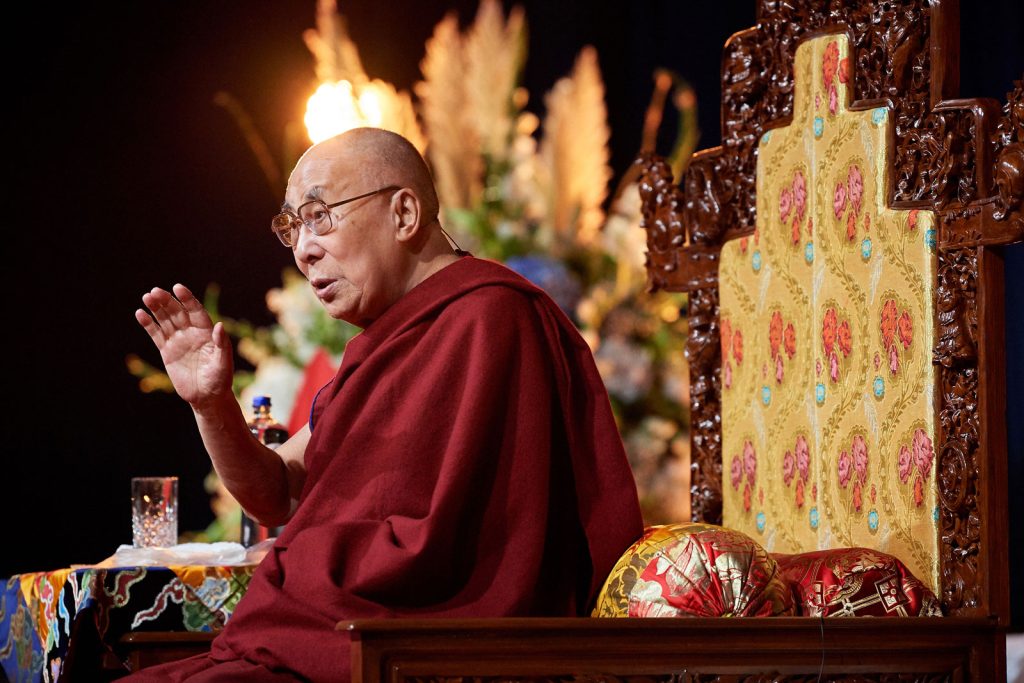After meeting with four people who claimed to have survived sexual assaults in European Buddhist communities, His Holiness the 14th Dalai Lama admitted to knowing about abuse in Buddhist circles since the 1990s.
“I already did know these things . . . it’s nothing new,” the Dalai Lama said in an interview with Dutch public television broadcaster NOS on Saturday, adding that “someone mentioned about a problem of sexual allegations” to him at a Dharamsala, India, conference for Western Buddhist teachers about 25 years ago. He added that those who commit abuse “don’t care about the Buddha’s teachings.”
The Dalai Lama was referring to a 1993 meeting that gathered different Buddhist traditions to discuss the dharma’s development and transmission to the West.
In a follow-up statement, Dalai Lama representative Tseten Samdup Chhoekyapa said that the Dalai Lama “has consistently denounced such irresponsible and unethical behaviour.”
On Monday, September 10—four days before the Tibetan leader’s scheduled four-day trip to the Netherlands—a group of physical and psychological assault survivors started an online campaign to meet with him and present a collection of survivors’ stories. A petition quickly gathered more than 1,300 signatures and a hashtag: #MeTooGuru.
“We took refuge in Buddhism with an open mind and an open heart, until we were violated in its name. Later, we found out that we are not alone,” read a statement posted on Change.org.
Oane Bijlsma was one of the four people who presented the Dalai Lama with testimony letters at the meeting on September 14. Bijlsma, from the Netherlands, said she had been “groomed” and “indoctrinated” by Sogyal Rinpoche, who last year resigned from Rigpa, the international network of Buddhist centers he founded, after multiple people accused him of physical and sexual abuse. Bijlsma says that she left Rigpa in 2012 and was never sexually abused by Sogyal Rinpoche.
A third-party investigation found many of the allegations against Sogyal Rinpoche to be highly credible, according to a report released by Rigpa earlier this month.
“The first thing we wanted was to generate a lot of attention, to break open the discussion . . . We wanted to let the public know that this religion has problems like all the other ones, and it’s time to take off the rosy glasses and start being real,” Bijlsma told Tricycle.
Bijlsma added that none of the four who met with the Dalai Lama continue to practice Buddhism. The meeting has been described in some outlets as “complicated,” and Bijlsma said that it felt as though her group and His Holiness were talking in “different languages” due to their cultures. Still, she was happy that they had the opportunity to do what many do not when interacting with him: speak loudly and clearly about a difficult topic.
“We interrupted . . . we weren’t there to show our devotion to him,” said Bijlsma, adding that she has “respect” for his philosophical knowledge.
Bijlsma said that she considered the brief meeting, planned by the organizers in just six weeks, a success because it shows that “taking action is a real possibility.”
The Dalai Lama told the alleged survivors that he would bring up their concerns at a planned November meeting of Tibetan Buddhist teachers in Dharamsala, and Bijlsma said he asked for their “cooperation” in preparing.
It’s unclear what the Dalai Lama can do in terms of reining in “bad” lamas. But Bijlsma said that there is an opportunity for the Tibetan leader, and his team, to better regulate whom he endorses in terms of backing a teacher or attending a temple opening.
The Dalai Lama, who has lived in exile in Dharamsala since leaving Chinese-occupied Tibet in 1959, continues on a European tour, which includes conferences and ceremonies in Germany and Switzerland before he returns to India.
Thank you for subscribing to Tricycle! As a nonprofit, we depend on readers like you to keep Buddhist teachings and practices widely available.
